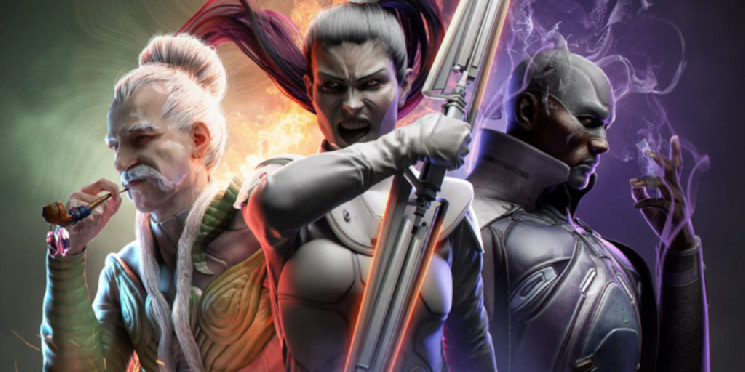Parallel, an NFT trading card game with assets minted across Ethereum and scaling network Base, will make its long-awaited move into open beta on Thursday, February 29, letting anyone jump in and start playing the competitive PC game.
Previously available only in a closed beta, Parallel—GG’s pick for the best game of 2023—builds on the foundations of genre giants like Hearthstone and Magic: The Gathering, but with some fresh wrinkles and a distinctive space opera setting.
Parallel’s developers announced the impending launch via a blog post on Wednesday, noting that a game update had been released with various gameplay tweaks and content additions ahead of the gates being opened to the public.
“It’s finally here. The open beta release of our baby out into the world,” the post reads.
According to the team, the update lacks any substantial balance changes because they’ve been focused on optimizing the PC game client. But beyond that, they say that “the game is pretty healthy,” and that they believe it feels reasonably balanced at present.
“We think there’s still a lot of room to explore in the current meta, and we’ll all be surprised what happens as more heads get into the game and build decks,” the post adds. “Good luck, and welcome to the beginning of the story.”
Parallel Game Servers are back online and Patch 0.27 is live!
Learn more about the latest updates and Open Beta Season 1 beginning March 1st!https://t.co/11Gk0YhMwl pic.twitter.com/l9dLFjgCs2
— Parallel (@ParallelTCG) February 28, 2024
Following Thursday’s open beta rollout, Parallel will launch a new season of in-game content on Friday, March 1, including a premium battle pass that players can optionally purchase to unlock a new in-game card and other perks.
For more on Parallel, read our hands-on preview of the game from last August, as well as our Game of the Year story with details on what’s ahead for the NFT experience.
Edited by Ryan Ozawa.







Leave a Reply